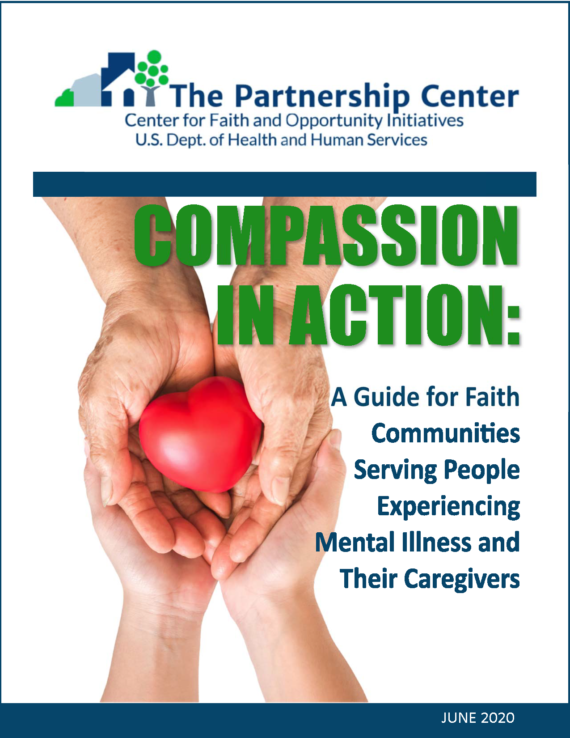
(7-13-20) Religious beliefs and mental illness can be a touchy subject.
Faith and spiritually often can provide comfort to those in crises. Sadly, some religious leaders encourage individuals to “pray away” a mental illness. Others explain that mental illnesses are the result of an individual not being faithful to God’s teachings. Ministers often are not trained in how to respond when someone in their church has a mental health crisis.
The federal government has issued a guide entitled: Compassion in Action: A Guide for Faith Communities Serving People Experiencing Mental Illness and Their Caregivers that is “designed as a resource to help faith leaders from all religious and spiritual traditions, as well as their congregants.”
The Center For Faith and Opportunity Initiatives (Partnership Center) at the federal Department of Health and Human Services, said the goal of its 42-page guide “is to increase awareness and build capacity to serve people in their midst experiencing mental illness, and to care well for their family or caregivers.”
One in four Americans seek help during a mental health crisis from a faith leader before they approach clinical professionals, the guide notes. To help faith leaders, the guide sets out “seven key principles that offer a way for leaders to address mental illness in their community and to identify the small steps they can take to put their compassion into action.”
“We recognize different faith traditions may approach matters of mental illness from different perspectives. Some faith communities may not believe that modern medicine of the sort described in this Guide can play a legitimate role in wellbeing. The purpose of this Guide is not to disregard such faiths or beliefs. Rather, for faith communities that accept the value of medicine, or those uncertain about how faith and medicine can interact, this Guide recommends an approach that offers the benefits of both faith and medicine.”





 Washington D.C. area. She is the station’s health reporter and played a pivotal role in developing NBC Channel 4’s long-running educational news series about mental illness called
Washington D.C. area. She is the station’s health reporter and played a pivotal role in developing NBC Channel 4’s long-running educational news series about mental illness called 


